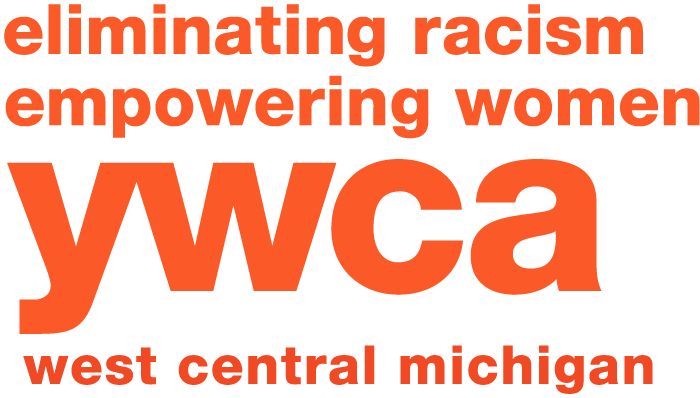FAQs
What does the YWCA do?
Where racism and sexism give rise to domestic and sexual violence, we help empower survivors with expert, comprehensive services: 24-hour confidential helpline, safety planning, legal help, domestic violence emergency shelter and supportive housing, medical-forensic examinations for sexual assault and intimate partner violence, counseling and support groups for victims; supervised parenting time and safe custody exchange. We simultaneously work against those things that fuel abuse with prevention education for young people and adults, leadership skill-building for girls, programming for men choosing alternatives to violence, and public policy that translates our mission into law.
Is the YWCA only for women?
Inclusiveness is a priority and a value of the YWCA. Further, racism, sexism, and domestic and sexual violence affect all genders. The YWCA serves those who come to us regardless of age, color, creed, disability, education, ethnicity, gender (including identity and expression), height, income, language, marital status, national origin, race, religion/spirituality, sex, sexual orientation, veteran status, or weight.
Is the YWCA the same thing as the YMCA?
The two organizations come from similar roots in history, but they have never been affiliated with one another and offer different services. The YWCA West Central Michigan is a Michigan non-profit corporation, and maintains an affiliation with the YWCA USA.
Does the YWCA provide health fitness programs?
As the needs of women have evolved, so have the YWCA’s programs. Although we have in the past, we no longer provide health fitness programs. Today, our services focus on addressing the public health crisis related to domestic and sexual violence.
Is the YWCA a faith-based organization?
In 1900, the YWCA’s founders were guided by a Christian perspective and incorporated under the name “Young Women’s Christian Association”. Voting membership was open only to women ages 16 and older who were members of Protestant Evangelical churches. Young women from other church communities could join as non-voting members. However, as the organization grew, its leaders’ perspectives expanded as well, and they established a progressive pattern of religious inclusiveness. By the early 1940s, religious affiliation requirements for members were eliminated altogether. Later, the board of directors voted to officially rename the “Young Women’s Christian Association” to more simply, “YWCA”. Today, there are no faith-based requirements for board members, volunteers, staff, or those whom we serve.
While the YWCA’s secular perspective means that we do not represent or require a specific faith tradition, we are also aware that faith and spirit can be important elements in a survivor’s recovery. YWCA staff work to help them remain connected to their faith community or to establish a relationship with one. The YWCA also has long-time partnerships with local, faith-based organizations. While these partnerships allow the YWCA to connect those we serve to faith communities as they may desire, these same partnerships allow those served within partner organizations to easily access important YWCA services.
What is the YWCA’s history?
The YWCA West Central Michigan is part of a national and international association of local, grassroots agencies that are best described as both social justice organizations and collectively a social justice movement. We have more than 120 years of experience providing service to, collaborating with, and advocating on behalf of the most vulnerable people in our community. We have a deep and abiding commitment to working on issues of economic, gender, and racial justice; particularly in the places where these systems overlap.
Our local association was founded in 1900, and we moved to our current facility at 25 Sheldon Ave. in 1922. It provided a home for the Caroline Putnam School, which marked the beginning of community education for women in our community.
The YWCA West Central Michigan’s efforts to confront racism began in the 1940s with the integration of the YWCA’s former Health Education Department. Helen Claytor, locally and nationally noted civil rights advocate, led us to a deeper sense of social and racial justice and later became the nation’s first African American board president of a YWCA city association.
We turned our attention to addressing violence against women and children in the 1970s. As society realized the value of improving women’s lives, it became clear that no progress could be made while women were subjected to violence and injustice. Today, our services work in concert to address domestic abuse, sexual assault, stalking, and child sexual abuse while empowering women and eliminating racism.
A fuller version of our history was written to commemorate our centennial anniversary. You can read it here: Grand River Valley History YWCA Centennial
Who are the YWCA’s partners?
YWCA West Central Michigan services are accredited by the Council on Accreditation of Services for Families and Children Inc. Compliance with state standards is overseen by the Michigan Domestic and Sexual Violence Prevention and Treatment Board. The YWCA’s key funders are the Heart of West Michigan United Way, the federal government, the State of Michigan, the County of Kent, and many corporate and individual contributors.
Is parking available?
The YWCA West Central Michigan owns a parking lot behind our building for use by YWCA customers and visitors (accessible from Weston). Additional parking is available at city meters and in the Spectrum lot on the corner of Weston and Sheldon (entry off LaGrave).
Is the Heartside neighborhood safe?
Yes. The Heartside neighborhood is the area south of Lyon, east of the Grand River, north of Wealthy, and west of Lafayette. It is home to thousands and is a significant corridor for non-profit organizations. Neighbors in the area include the Grand Rapids Police Department, the public library, museums, clothing/gift boutiques, coffee houses, theaters and performance halls, human service organizations, healthcare facilities, galleries, and many housing units ranging from low-income apartments, to trendy lofts, to historic houses. As is true anywhere, there is crime in the area. No matter where you go, please remember to take responsibility for your personal safety by listening to your intuition and using common sense safety habits.
